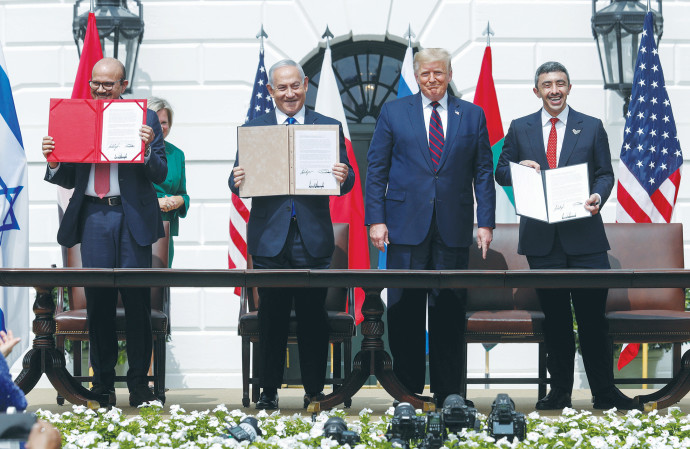The Abraham Accords offer a better future for the Middle East and are “one of the best answers” to Iran, Israeli Ambassador to the US Mike Herzog said on Sunday.
Speaking at the opening of the first Zionist Rabbinic Coalition conference, held at the Bible Museum in Washington, Herzog said that the agreement’s potential is “huge.”
“We are now in the process of building a civilian architecture with our new partners and a security architecture with those partners,” he said. “We would like to deepen what we have and we are doing it every day. And I believe that more and more countries are looking at us and saying, 'This is a success story and we want to join.’ And the fact of the matter is that countries that have had cold peace with Israel are warming up to us.”
The ambassador gave Egypt as an example. “We’ve had cold peace for decades since we signed peace with Egypt. Things are changing very rapidly. We now have, for the first time in decades, an EgyptAir flight to Israel and direct flights between Israel and Egypt, open meetings between our leaders and President Sisi. And no more hiding, the Israeli flag is there. We do a lot of things together, which goes far beyond security, and that’s a very different world."
He said the Middle East is defined by a struggle between “those who like to move our region to a better future, to offer a better future to the young generation, to stabilize the region, to improve the well-being of the citizens of this region,” and those who would like “to take us back to the past, who thrive on violence, on incitement, of hatred. And there is a major struggle, which I think will determine the future of our region.

“The breakthrough toward Israeli Arab normalization, as represented by the Abraham Accords, is a major breakthrough in the struggle between these two camps in the Middle East,” he said.
The breakthrough toward Israeli Arab normalization, as represented by the Abraham Accords, is a major breakthrough
Ambassador to the US Mike Herzog
Herzog noted that alongside the opportunities in the Middle East, he would like to discuss the campaign to delegitimize Israel and deny the right of the Jewish people to self-determination.
Campaign against Israel
“It’s a bit ironic that I talk about opportunities and Middle Eastern challenges in the United States,” said Herzog. “If you asked me five years ago, I would speak about challenges in the Middle East and opportunities in the United States, but here we are, and that’s reality.
“I was well aware of [the campaign to delegitimize Israel] before coming here, but now I and my staff in the embassy, we experience it every day, all the time, and we see it on campuses in the media and social media – everywhere,” he continued. “And it’s something that we have to address very seriously. And we are putting our minds together, not only us, but also people back home.
“But for us in the embassy, it’s a major task to deal with. We have to develop a strategy and build the tools to counter that campaign. And essentially what is a national conflict between two national movements is portrayed along racial lines, along religious lines. I am of the opinion that we have to fight back, we have to speak up, and we should not allow anybody to intimidate us. Certainly not to silence us. My policy is wherever we see it, we have to respond,” he said.
